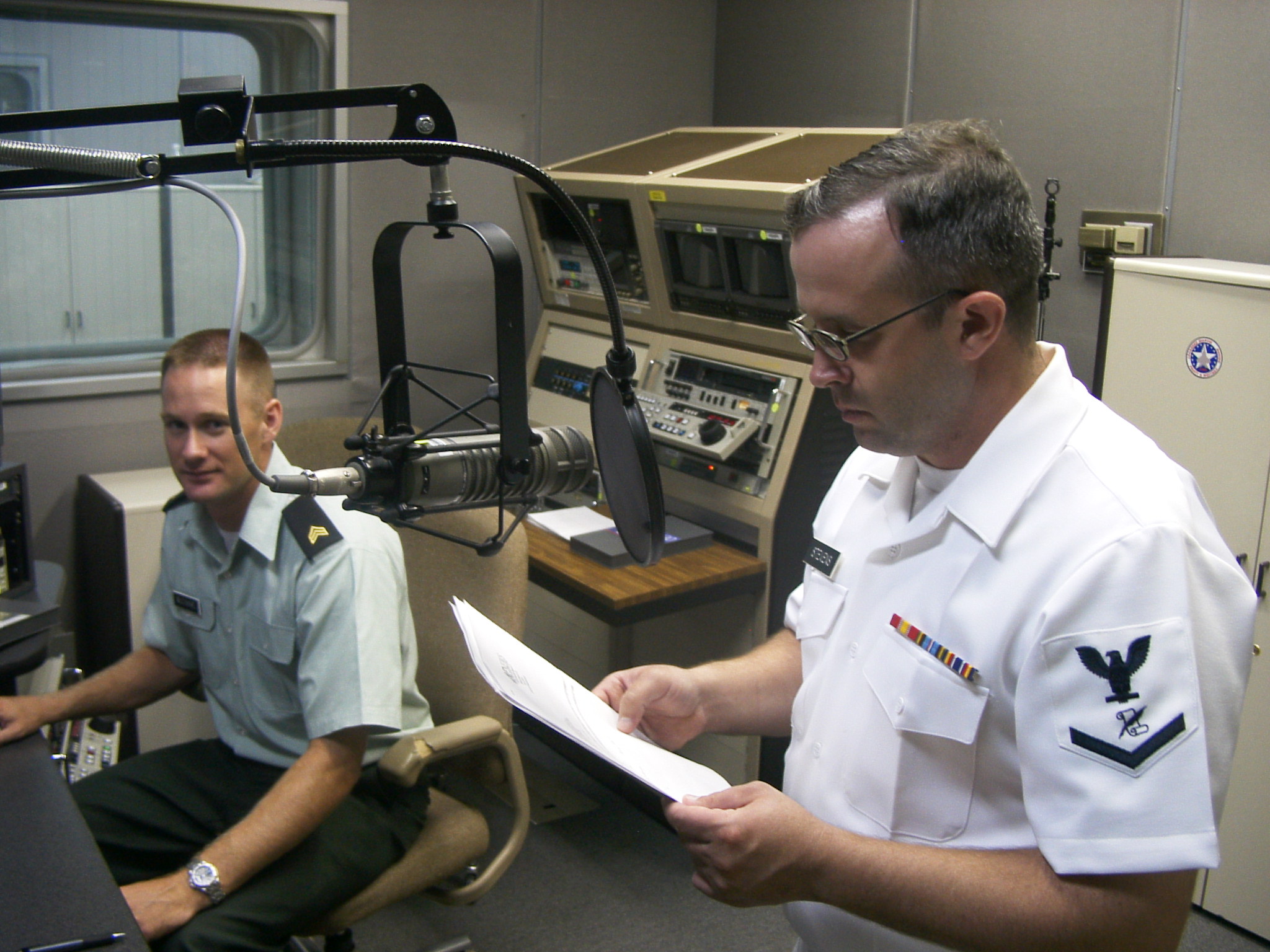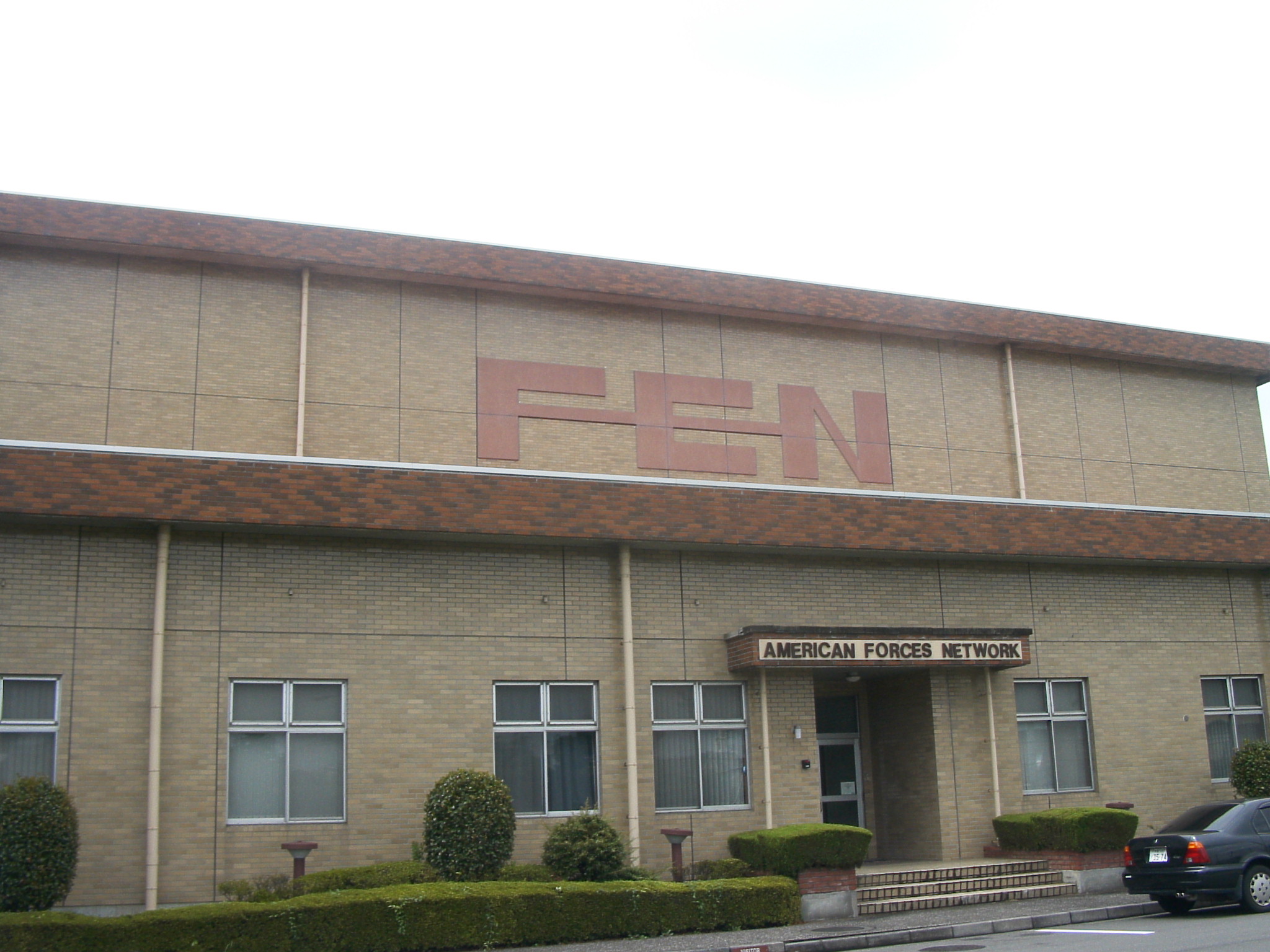This is a reprint of the article that was published in Daily Yomiuri on September 10, 2005.
Wataru Doi Special to The Daily Yomiuri
On Sunday morning, it's a good idea to tune your radio to 810 kilohertz and do nothing but relax. Well-selected smooth jazz and relaxing talk confirm that it's the weekend. If you are driving, the sound from the car's speakers helps ease the tension of driving. Stay tuned till the afternoon, when the famous program American Country Countdown kicks up its boot heels.
The programs are as sophisticated as any mainstream broadcast, and first-time listeners to the station may take a while to realize that the U.S. military sponsors it. Even those who listen for a long time may feel odd about the station identification announcement between programs: "This is American Forces Network."
That's partly because for many, the former call letters FEN (Far East Network), must sound more familiar than the current AFN moniker. Especially for Japanese who listened as part of their efforts to get ahead in the global arena, the name FEN means a lot.
Though the station has changed its name a few times throughout its 60-year history, the mission of AFN has remained unchanged since it aired its first broadcast right after the end of World War II.
"Our primary role is to provide English-language news and local military information to American military people and their family members. The second is to provide the programs to nonmilitary people and Japanese," says Keith Lebling, detachment chief of AFN Tokyo.
The station is located on the western side of Yokota Air Base in Fussa, Tokyo, employing 60 people, including five disc jockeys.
The disc jockeys did not have broadcasting experience in civilian life, but received professional training from the military. Inside the broadcasting rooms, they wear military uniforms as they stand before the microphone.
AFN Tokyo beams variety of programs, including sports, music, drama, hit charts and news. Asked about the station's most popular shows, Lebling answers: "One of our most popular programs is Eagle 810 Morning Show. Audiences listen to the program in cars on their way to work or at home to get news and morning information. It's very popular because this program is the only English-language morning news in Japan."
The history of AFN dates back to World War II. Supported by the U.S. Army and Navy, the Armed Forces Radio Service (AFRS) started broadcasting from Kodiak Island in Alaska to American forces serving in other countries in 1942. As the battlefronts in the Pacific Ocean advanced, AFRS provided programs to those serving there and built outlets in the Gilbert, Marshall and Solomon islands.
When AFRS established an Okinawa outlet in July 1945, there were 18 stations, and the name Far East Network came into use. The Tokyo station was launched 10 days after formal surrender ceremonies aboard the battleship USS Missouri in Tokyo Bay. The station started up on Sept. 12, 1945, using NHK's building.
Photos by Wataru Doi
Uniformed announcers take to the air at AFN.
The old FEN sign still hangs over the AFN building.
In 1947, AFRS ran radio stations in Japan, South Korea, the Philippines and various Pacific islands. In Japan, it had stations in seven locations: Tokyo; Kokura, Fukuoka Prefecture; Kumamoto; Oita; Okinawa Prefecture; Osaka; and Sapporo. The stations were officially recognized as the Far East Network of AFRS that year, and the key Tokyo station began feeding programs to the others. Fifty years later, FEN changed its organizational structure, and FEN Tokyo changed to the American Forces Network Tokyo in 1997. Officially, it is now Detachment 10, Air Force News Agency.
During the war, the main problem was keeping up the morale of the servicemen. AFRS' mission was to solve this, and the stations aired entertainment and news from the home country to the U.S. forces. The radio station had another important responsibility--to convince Japanese troops who had remained on Pacific islands to surrender with minimum deaths. For that purpose, AFRS prepared Japanese programs with Japanese songs.
After the war, FEN's role was to continue bolstering the morale of U.S. forces in Japan, providing needed information and entertainment. FEN's target audience was not only U.S. service members, but also nonmilitary English-speaking people and the Japanese public. Since FEN was the only English-language station that time, many Japanese listened to the station to learn English.
"I had no experience of going abroad and FEN was the only way to listen to native English speakers' conversation. I often recorded news or dramas of the station on a tape and listened to it over and over. When I drove, I switched on the radio and tuned to FEN in order to keep my 'ear' for English," says Takanori Togo, associate professor of Sophia University, in recalling of his younger days.
"Current students are lucky because they can access CNN, the BBC, or other English broadcasts even in Japan. They can also listen to the radio over the Internet. When I was a student, we had no choice other than FEN," Togo says. "Probably, I was the last generation who learned English through FEN."
In the 1950s and '60s, American records and tapes were not widely available in Japan, and FEN's music programs were the only opportunity for most people in the nation to enjoy American music.
"At that time, FEN was the entrance to American culture for Japanese," says Charlie Nagatani, a Japanese country musician who is an honorary citizen of 33 states in the United States. "Country, jazz, and Hawaiian musicians began their careers with FEN."
Nagatani was born and raised in Kumamoto Prefecture, where Camp Wood was located in the 1950s. He listened to a local FEN outlet that received programs from FEN Tokyo. "In my younger days I always yearned for the English language and American music, and listened to FEN. After I became a musician, I learned music from FEN. I wrote down lyrics of the country music from the radio and memorized them. When I had phrases and sentences I could not [comprehend], I asked servicemen and they were always willing to help me."
The radio was the best way to broadcast information in the past. However, today the role of the radio station is decreasing due to the variety of media available as a result of technological advancement. The Internet can deliver news from the other side of the planet in seconds. Satellite brings CNN or the BBC to virtually everywhere on Earth.
In this way, the wind is blowing against radio stations, including AFN Tokyo. Unlike commercial stations that cater to specific types of listeners, AFN Tokyo has to serve a wide general audience of young and old, married and single, men and women.
"We prioritize balance in program development. The problem is we have to make everyone happy with only one signal, 810 kilohertz," Lebling says. AFN Tokyo also has to maintain consistency to keep listeners happy. "AFN Tokyo cannot have big changes in the program," he adds.
But technology has brought not only difficulties, but also benefits. Indeed, Lebling says technology has changed the station more than any other factor. Today, it uses satellite to import programs from the homeland. The station is also armed with state-of-the-art hardware and software to produce its own original programs.
Other than technology, AFN Tokyo also relies on the high quality of its programming.
Satoshi Sugita, chief operating officer of the public relations agency Prap and a lecturer on NHK's Business English educational radio program, says the quality of programs at the station is excellent--and unmatched by Japanese media.
"FEN ran a special program in the Christmas season. It was when my children were in the early grades of primary school, which was almost the same age as when I heard the station for the first time," Sugita says. "The program took the form of live coverage of reindeer coming from the North Pole. I translated the story for my kids, and they liked it very much."
As an expert on media, Sugita admires AFN's development and selection of programs.
"Interviews are wrapped up within the limited time. Dramas are intelligent. Entertainment is full of wit. I once used a part of the contents in my own radio program," he says.
AFN Tokyo can provide another benefit, especially for English learners. As an English education professional, Sugita advises: "When listening to the radio, we can focus on the sound. It trains the ability of listening. Television has visuals and we cannot focus on words, sentences or pronunciations."
AFN Tokyo will celebrate its 60th birthday next week. There are many challenges ahead for the station. However, radio broadcasting has its own advantage. The equipment is small and easy to carry. Audiences can listen to the radio whenever and wherever they want.
On the outer wall of AFN's station building, there still remains a sign identifying the place as "FEN." It remains in place because removing it would cost too much, Lebling says.
As long as the signboard exists, the accomplishments of FEN will not be forgotten.
(This article was written and posted on September 10, 2005)

